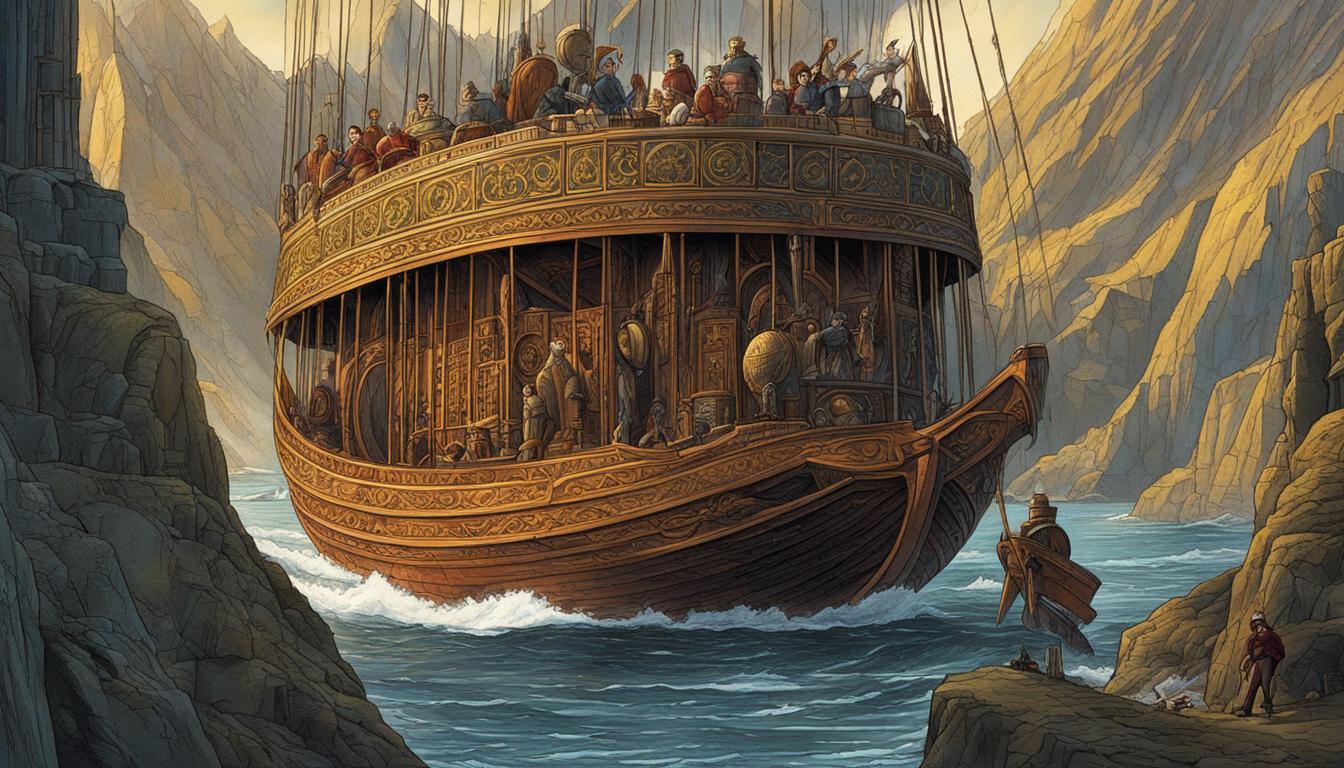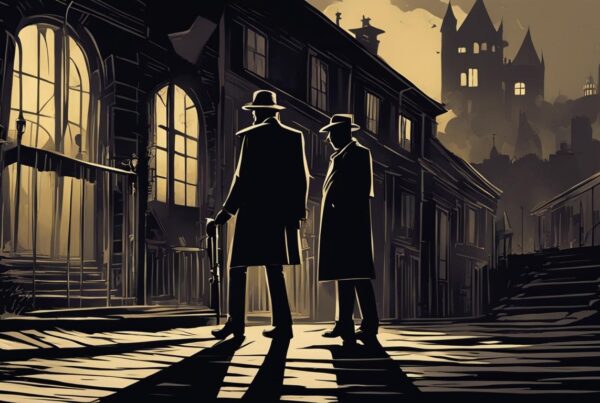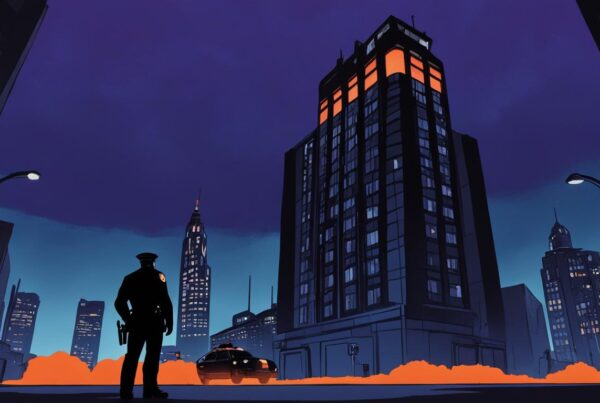The His Dark Materials Omnibus by Philip Pullman is a collection of three young adult fantasy novels that have captivated readers since the first book, Northern Lights (The Golden Compass in North America), was published in 1995. This book summary covers the entire trilogy, which also includes The Subtle Knife and The Amber Spyglass, as well as the various themes and messages woven throughout.
Philip Pullman’s epic storytelling has earned him a devoted fan base, critical acclaim, and numerous awards, including the Carnegie Medal and the Astrid Lindgren Memorial Award. His Dark Materials has also been adapted into various forms of media, including a feature film and a television series.
About the Author
Philip Pullman is a highly acclaimed British author known for his celebrated contributions to the fantasy genre. He was born in Norwich, England, in 1946, and grew up reading a wide range of classics, including those from the golden age of science fiction.
In his early career, Pullman worked as a teacher and then went on to pursue his passion for writing full-time. Over the years, he has authored numerous award-winning novels, plays, and picture books, including the critically acclaimed His Dark Materials trilogy, The Ruby in the Smoke, and The Firework-Maker’s Daughter.
Pullman’s ability to create captivating worlds filled with rich, multi-dimensional characters has made him a beloved author among fantasy enthusiasts and literary critics alike. His vivid descriptions, intricate plotting, and masterful use of language have cemented his reputation as one of the most influential voices in modern literature.
Plot Overview
The His Dark Materials Omnibus follows the adventures of young Lyra Belacqua, who hails from an alternate world where humans are accompanied by animal-shaped dæmons that embody their souls. Lyra’s journey begins when she uncovers a plot involving lost children and a mysterious substance known as Dust. She embarks on a perilous mission to the North, encountering witches, armored bears, and a cast of intriguing characters along the way.
As Lyra’s quest unfolds, she discovers the true nature of Dust and its place in the multiverse, ultimately leading to a battle for the fate of all worlds. The epic trilogy, comprising Northern Lights (or The Golden Compass in North America), The Subtle Knife, and The Amber Spyglass, is a masterful blend of fantasy, philosophy, and adventure.
“‘We have to build the Republic of Heaven where we are, because for us, there is no elsewhere.'” – The Amber Spyglass
Worldbuilding and Setting
His Dark Materials world is a complex and intricate universe, filled with unique concepts and fantastical creatures. Set in a parallel world similar to ours, the story of His Dark Materials is primarily centered around Lyra Belacqua, a young girl living in Oxford in Jordan College, and her journey to uncover the truth about her past and the world around her.
The worldbuilding in His Dark Materials is exceptional, with author Philip Pullman creating a fully realized and immersive setting that takes readers on an unforgettable journey across multiple universes. The story unravels across three books, The Golden Compass, The Subtle Knife, and The Amber Spyglass, with each book exploring unique and fascinating worlds, each with their own set of rules and cultures.
One of the most notable aspects of His Dark Materials’ world is the concept of daemons, which are physical embodiments of a person’s soul in the form of an animal. This plays a crucial role in the narrative and adds a unique dimension to the story. The universes explored in the books are also incredibly imaginative, from the icy kingdom of the armored bears in Svalbard to the mystical world of the dead in the Land of the Dead.
The world of His Dark Materials is not only visually stunning and peculiar but also reflective and thought-provoking, with Pullman exploring complex themes such as religion, power, and morality. It is a world that captures the imagination and leaves a lasting impression, making His Dark Materials a must-read for any fan of fantasy and science fiction.
Main Characters
The His Dark Materials series is anchored by a rich cast of characters, each with a distinctive arc and role to play in the story’s unfolding. Two of the most prominent characters are Lyra Belacqua and Will Parry, who serve as the protagonists of the series and drive much of the action.
Lyra is a brave and curious young girl, who is initially sheltered by academics at Oxford’s Jordan College. She sets out on a series of adventures across different universes, discovering the truth about her own identity and uncovering an expansive conspiracy that threatens the very fabric of reality.
Will, on the other hand, is a boy from our world who crosses over into Lyra’s universe and becomes her close companion. He is resourceful and determined, driven by a deep desire to protect his loved ones and find his missing father. Together, Lyra and Will embark on a high-stakes journey that will test their resolve and reveal the full extent of their abilities.
Other notable characters in the series include Lord Asriel, Lyra’s enigmatic father, who is embroiled in a grand struggle for power and autonomy; Mrs. Coulter, a glamorous and cunning woman who has her own agenda and a complicated relationship with Lyra; Lee Scoresby, a Texan aeronaut who becomes a loyal ally to Lyra and Will; and Serafina Pekkala, a witch queen who provides critical support to the heroes along the way.
“I’ve been fighting to protect you since you were born.” – Lord Asriel to Lyra
Themes and Messages
The His Dark Materials Omnibus explores a range of complex themes and moral messages, including the role of religion, the power of personal agency, and the nature of consciousness.
“I learned that you have to be careful when you’re trying to change things. Sometimes, the thing you want to change isn’t the only thing that’ll get changed.” – Lyra Belacqua
One of the most prominent themes in the series is the relationship between religion and power. The Magisterium, a religious authority, wields immense control over the lives of the characters and seeks to suppress knowledge and free will. The novel questions the morality of this authoritarian system and explores the consequences of blind faith.
The role of personal agency is also central to the story. The characters must navigate complex ethical dilemmas and make decisions that have far-reaching consequences. Whether it’s Lyra’s quest to rescue the children or Will’s choice to return to his own world, the novel emphasizes the importance of individual responsibility and the power of choice.
Finally, His Dark Materials delves into the nature of consciousness and the idea of the soul. The daemons, physical manifestations of the human soul, offer a unique perspective on the mind-body problem and the interdependence of conscious beings. The final book in the series concludes with a provocative exploration of the afterlife and the ultimate fate of consciousness.
Writing Style and Structure
Philip Pullman’s writing style is known for its rich vocabulary, vivid descriptions, and extensive world-building. Pullman’s use of language can be seen through his descriptions of the various universes in His Dark Materials and the distinct cultures of each world.
Another aspect that sets Pullman’s writing apart is his use of narrative techniques. Pullman employs a third-person omniscient narrator, which allows for a fluid and engaging storytelling experience. His use of multiple points of view also adds depth and complexity to the story, providing readers with unique perspectives on events.
Furthermore, Pullman’s incorporation of themes such as religion, morality, and personal agency creates a layered and nuanced narrative. These themes are woven seamlessly into the story, contributing to a thought-provoking and rewarding reading experience.
All of these elements are enhanced by Pullman’s meticulous attention to pacing. His Dark Materials is structured in a way that allows for both slow-burn moments of introspection and fast-paced action scenes. The result is a story that is both engaging and emotionally resonant.
In summary, Philip Pullman’s writing style can be characterized by his imaginative use of language, intricate world-building, and thoughtful exploration of complex themes. His narrative structure and pacing are equally impressive, contributing to a rich and rewarding reading experience.
Reception and Impact
The His Dark Materials Omnibus has received critical acclaim since its publication, with many praising its intricate worldbuilding, multifaceted characters, and thematic depth. The series has won numerous awards, including the Carnegie Medal, the Guardian Children’s Fiction Prize, and the Whitbread Book of the Year Award. In addition, the novels have been adapted into various formats, including a stage production, a radio play, and a television series.
Despite its widespread popularity, His Dark Materials has also faced controversies over its critical stance towards organized religion. Some religious groups have criticized the series for its portrayal of God and the angelic beings known as “the Authority,” while others have praised it for its exploration of complex philosophical ideas.
“His Dark Materials is an ambitious and masterful work of fiction that has captivated readers of all ages. Its imaginative storytelling and thought-provoking themes have resonated with audiences around the world, making it a modern classic in the fantasy genre.”
Analysis of Book 1
The first installment of Philip Pullman’s His Dark Materials Omnibus, titled “Northern Lights” (also known as “The Golden Compass” in North America), introduces readers to an intricate and imaginative world filled with complex characters and thought-provoking themes. The story follows Lyra Belacqua, a young girl living in a parallel universe where people’s souls exist outside their bodies in the form of animal companions called daemons. When Lyra’s best friend is kidnapped by a mysterious organization called the Gobblers, she sets out on a perilous journey to rescue him, uncovering secrets and conspiracies along the way.
The novel’s themes of free will and personal agency are exemplified through Lyra’s journey, as she learns to question authority figures and make her own decisions. Pullman’s vivid descriptions and meticulous worldbuilding transport readers to Lyra’s world, where the line between good and evil is blurred and nothing is as it seems.
The character development in Book 1 sets the stage for the rest of the series, particularly Lyra’s growth from a headstrong and naive child to a more mature and introspective young adult. The relationships between characters, such as Lyra’s complicated bond with the enigmatic and dangerous Mrs. Coulter, add emotional depth and complexity to the story.
“The alethiometer had shown her the truth of Mrs. Coulter’s love. It was a strange and powerful thing, incomprehensible in many ways, susceptible to wrong turnings, like any strong force.”
Overall, Book 1 of His Dark Materials is a captivating and well-crafted introduction to Pullman’s epic fantasy trilogy, enticing readers with its intriguing characters, complex themes, and immersive worldbuilding.
Analysis of Book 2
Book 2 of the His Dark Materials Omnibus by Philip Pullman, titled The Subtle Knife, is a thrilling continuation of the story that expands on the already complex world and characters established in the first book. The novel is divided into chapters that alternate between the perspectives of Lyra and Will, the two protagonists who come from different worlds, yet find themselves thrown together in a dangerous quest to save all of existence.
One of the most notable aspects of The Subtle Knife is the introduction of new characters, such as Will’s father, who play major roles in the story and add new layers to the rich tapestry of the His Dark Materials world. Additionally, the novel explores new universes beyond the ones established in the first book, providing fresh settings and challenges for the characters to overcome.
The narrative structure of The Subtle Knife is intricately crafted, with the alternating perspectives of Lyra and Will building tension and creating a sense of urgency as their paths converge towards a climactic confrontation. Pullman’s writing style remains engaging, with vivid descriptions that transport the reader into the fantastical world of the story.
In terms of themes, The Subtle Knife delves deeper into the exploration of personal agency, free will, and the morality of power that was introduced in the first book. The novel also expands on the concept of daemons, the animal companions that are intrinsic to each character, adding new dimensions to their significance and symbolism.
The Subtle Knife is a remarkable continuation of Pullman’s epic story, adding new dimensions to the characters and world while continuing to explore complex themes and ideas.
Analysis of Book 3
The final book in the His Dark Materials trilogy, The Amber Spyglass, marks a fitting conclusion to this sprawling epic. Pullman raises the stakes with this book, as everything that has been set up throughout the series finally comes to a head.
The resolution of the series is both satisfying and poignant, bringing together the many threads of the narrative in a way that feels organic and inevitable. Throughout the book, Pullman continues to explore the series’ central themes of religion, moral responsibility, and personal agency, leading to powerful moments of reflection and introspection for characters and readers alike.
One of the most striking features of this book is its expansive and imaginative worldbuilding. Pullman’s vision of the world(s) continues to evolve, introducing new concepts and ideas that challenge our assumptions and expectations. The complex and intricate cosmology that underpins the story is truly impressive.
The book is not without its flaws, however. Some readers may find certain plot developments to be overly convenient or contrived, and the pacing of the book can be uneven at times. Nevertheless, the strengths of the book far outweigh its weaknesses, and it remains a must-read for fans of the series.

“[Pullman] brings to [the story] grandeur, metaphor and emotion enough to fuel a dozen adult epic fantasies…He has mapped an elaborate world that he delights in.” – New York Times Book Review
Conclusion
In conclusion, the His Dark Materials Omnibus by Philip Pullman is a masterpiece of modern fantasy literature. Pullman’s expert worldbuilding and complex characters create a rich and immersive reading experience that explores deep themes and moral messages. From the first book to the last, the journey of Lyra and Will is one that will stay with readers long after the final pages.
Overall, His Dark Materials is an extraordinary work of fiction that has captivated audiences around the world. Its impact on the genre and beyond is undeniable, with adaptations in film, television, and theater further cementing its place in popular culture. As we come to the end of this analysis, it is clear that His Dark Materials is a series that demands to be read and treasured for generations to come.
Thank you for joining us on this journey through the world of His Dark Materials – we hope you have enjoyed exploring this incredible series as much as we have. These are our final thoughts on the His Dark Materials conclusion, and we cannot wait to see where these books take readers in the future.



